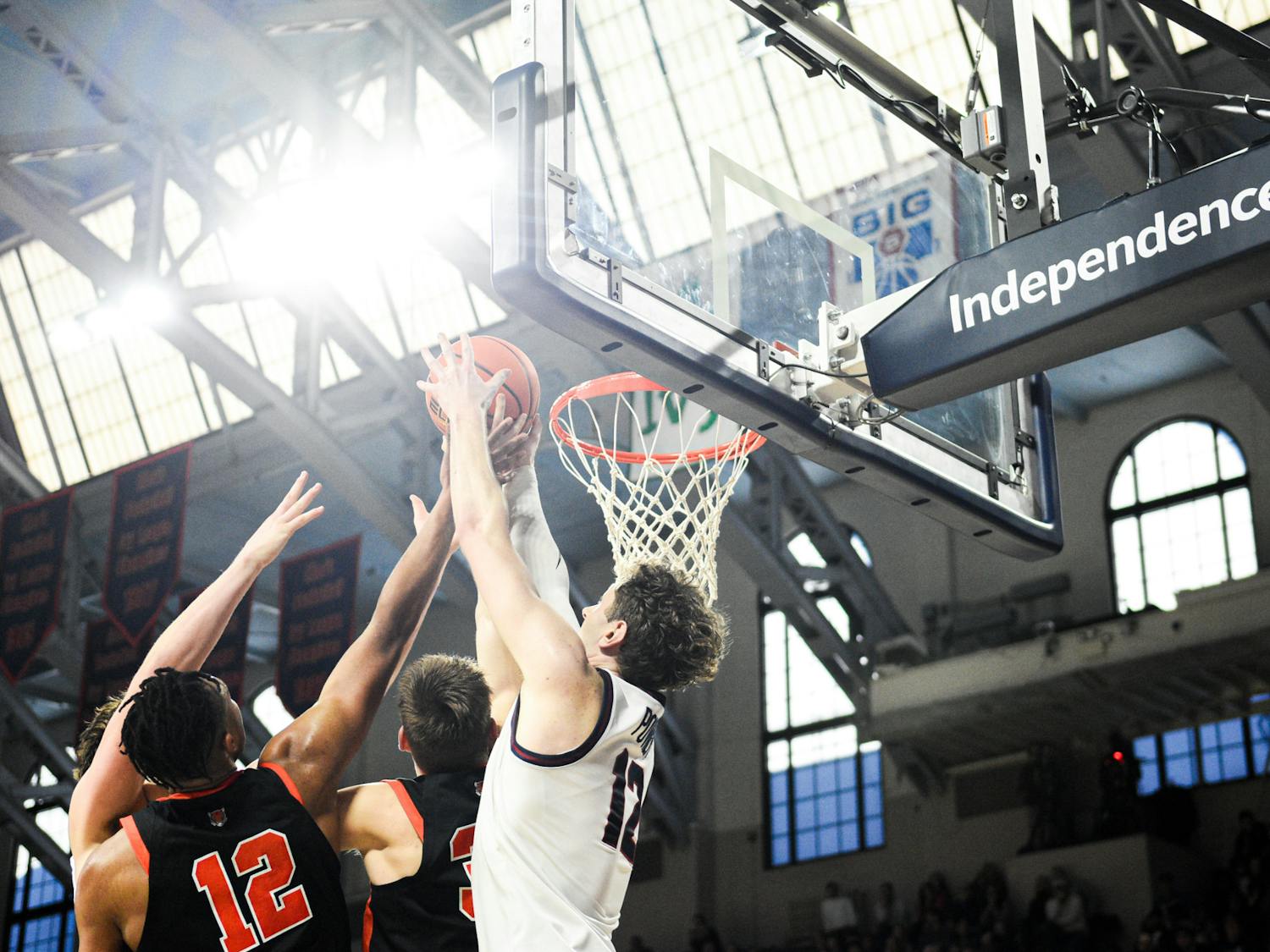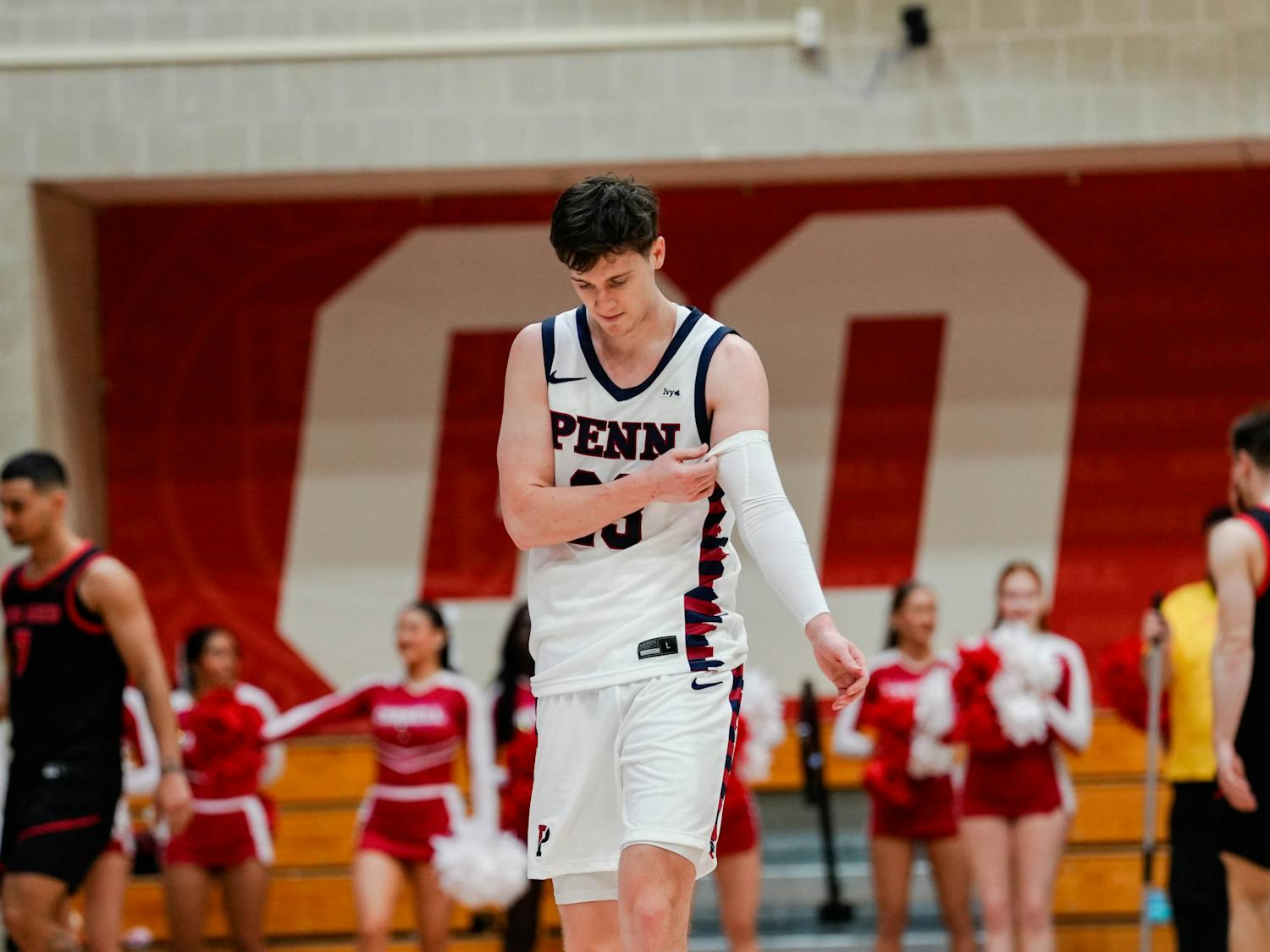For many Penn students, navigating academics alone is difficult, but student-athletes have it worse.
At Penn, where around 10% of the student body consists of athletes, the challenges of balancing athletics and academics are intense and require discipline. Athletes juggle early-morning practices and late-night studying, which can be mentally and physically taxing.
College sophomore and gymnast Samantha Wu practices with the gymnastics team in the mornings before class. On the weekends, the team usually travels by bus to other universities for meets, sometimes arriving back to campus as late as 3 a.m.
“It’s not only physically tiring, but mentally tiring as well, arriving back at 3 a.m. and having to go to class on a Monday morning,” Wu said.
Wu said that one of her biggest struggles as a student-athlete has been selecting classes that don’t conflict with morning practice times, as student-athletes at Penn are not afforded priority in course selection.
“If you have to leave early [for class], you have to come back to make up the conditioning and weightlifting assignments,” Wu said.
Furthermore, Wu added that meets can occasionally conflict with class times, causing her to miss recitations or Friday classes.
“We would have to cancel or email our instructor that we have to miss it and pray that they would excuse it,” Wu said.
Because of all these difficulties, college gymnastics was a “big adjustment” for Wu, but she feels that she has gotten better at managing her time in her sophomore year compared to her freshman year. She sections her days, honing in on gymnastics at the start of her day and her classes later on. After a day of classes, she takes a break, eats dinner, and then begins her study blocks, which take place between 8 p.m. and 12 a.m.
“Although you still have to have fun, you still have to especially know when to do work and how to do work, and form a study group,” Wu said. “My biggest advice is to make a friend group to study with and make a friend group to go out with.”
Similar to Wu, College senior and soccer captain Michael Hewes also finds it difficult to schedule classes around practice times because of the lack of pre-registration priority for athletes. His academic pathway to complete his major requirements was unorthodox compared to the typical timeline due to conflicts with practices and games.
“It is important for me to have a pretty structured schedule, especially during the season,” Hewes said. “Having a good understanding of assignments or different project deadlines that are approaching is crucial to be successful off the field while also practicing or playing five to six times a week.”
Hewes also relies on his time management skills to maximize his playing ability and complete his academic responsibilities.
“During the season, we travel pretty frequently, so it’s very important to stay on top of the work that you have, or else it’s pretty easy to fall behind,” Hewes said. “If you’re managing your time well, though, good academic standing is definitely achievable.”
For College first year and rower Natasha Kobelsky, maintaining a good equilibrium between academics and athletics is also a challenge. Kobelsky wakes up at 5:50 a.m. every day to pack her bags to catch the bus to the boathouse, which is around a 10-minute drive away. Once there, she practices with her team until 9:30 a.m., showers at the boathouse, and comes back to campus to eat breakfast and attend class.
“When I’m at practice, I’m only thinking about what’s going on at practice and how to make it the most effective possible thing while I’m there and make the most of my time,” Kobelsky said. “When I’m in class, I’m locked in most of the time because you just can’t really afford to be wasting your time in class not paying attention or not getting other things done.”
Kobelsky is also involved in several activities outside of school and rowing. She is currently a chair for the College of Arts and Sciences on the 2027 Class Board, a music fellow, and a volunteer with Young Quakers Community Athletics.
Because of all her commitments, Kobelsky feels that her time is often “limited,” and this occasionally impedes her ability to do well in school. Sometimes, she turns in assignments late or doesn’t study for an exam as much as she should. Furthermore, sleep often takes precedence over her assignments; she tries to get at least eight hours of sleep per night so that her athletic performance isn’t impacted.
“I think the amount of mental energy that it takes to be really focused and giving 100% to this sport means it’s much, much harder at the end of the day to prioritize academics over everything,” Kobelsky said.
However, Kobelsky said that having a routine structure centered around practice helps hold her accountable for her work; she doesn’t wait until the last minute to finish her academic assignments because of training and practice. She has also familiarized herself with time management strategies, such as daily to-do lists, and uses resources such as athlete tutoring offered by the Weingarten Center so that she doesn’t fall behind.
“It’s also important to keep in mind that you can’t do everything in a day, so for me, I just think, ‘Today, what can I do to work towards my goals?’” Kobelsky said. “If you just tackle that every day and you’re doing the best you can, then in the end it’ll all end up working out.”









